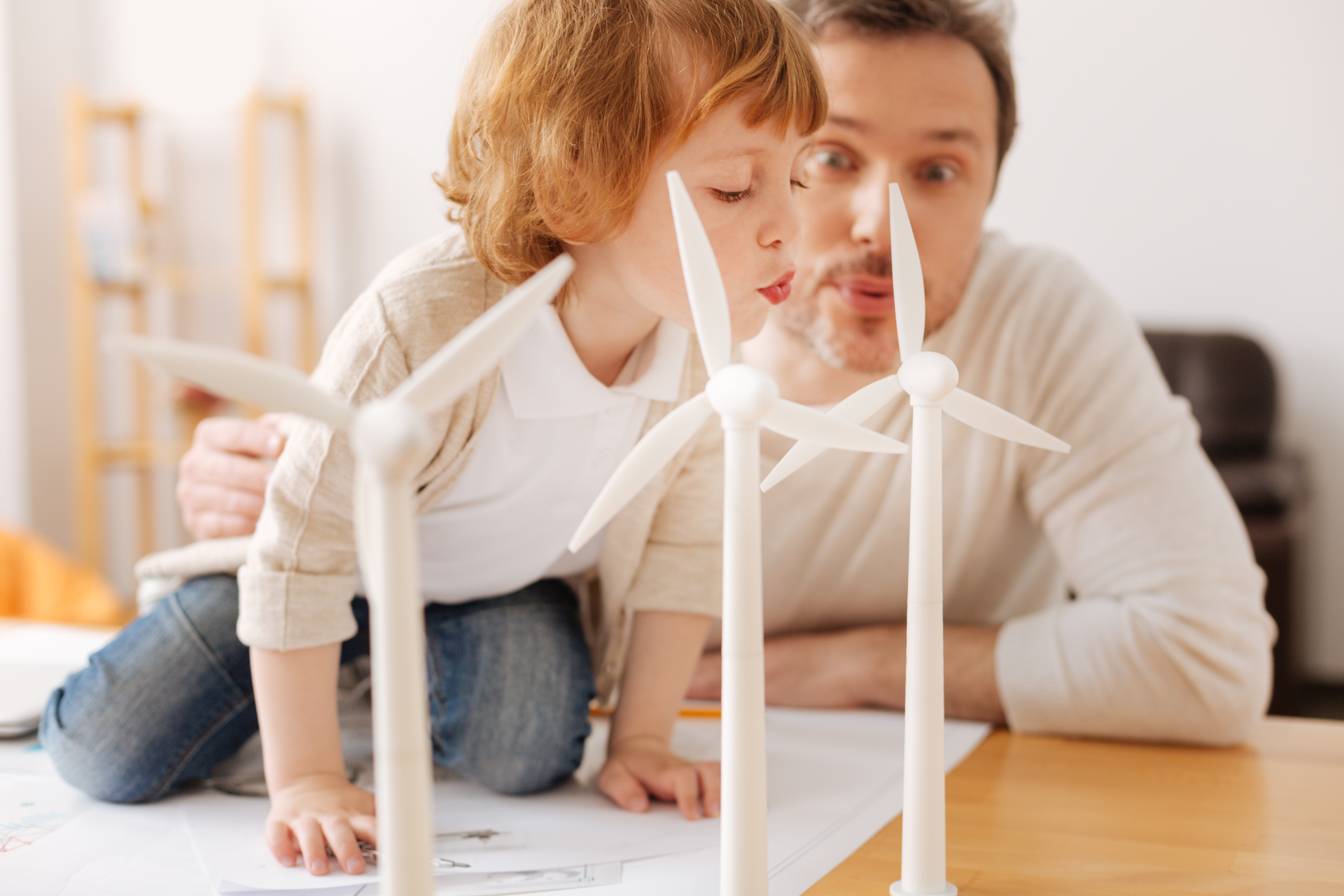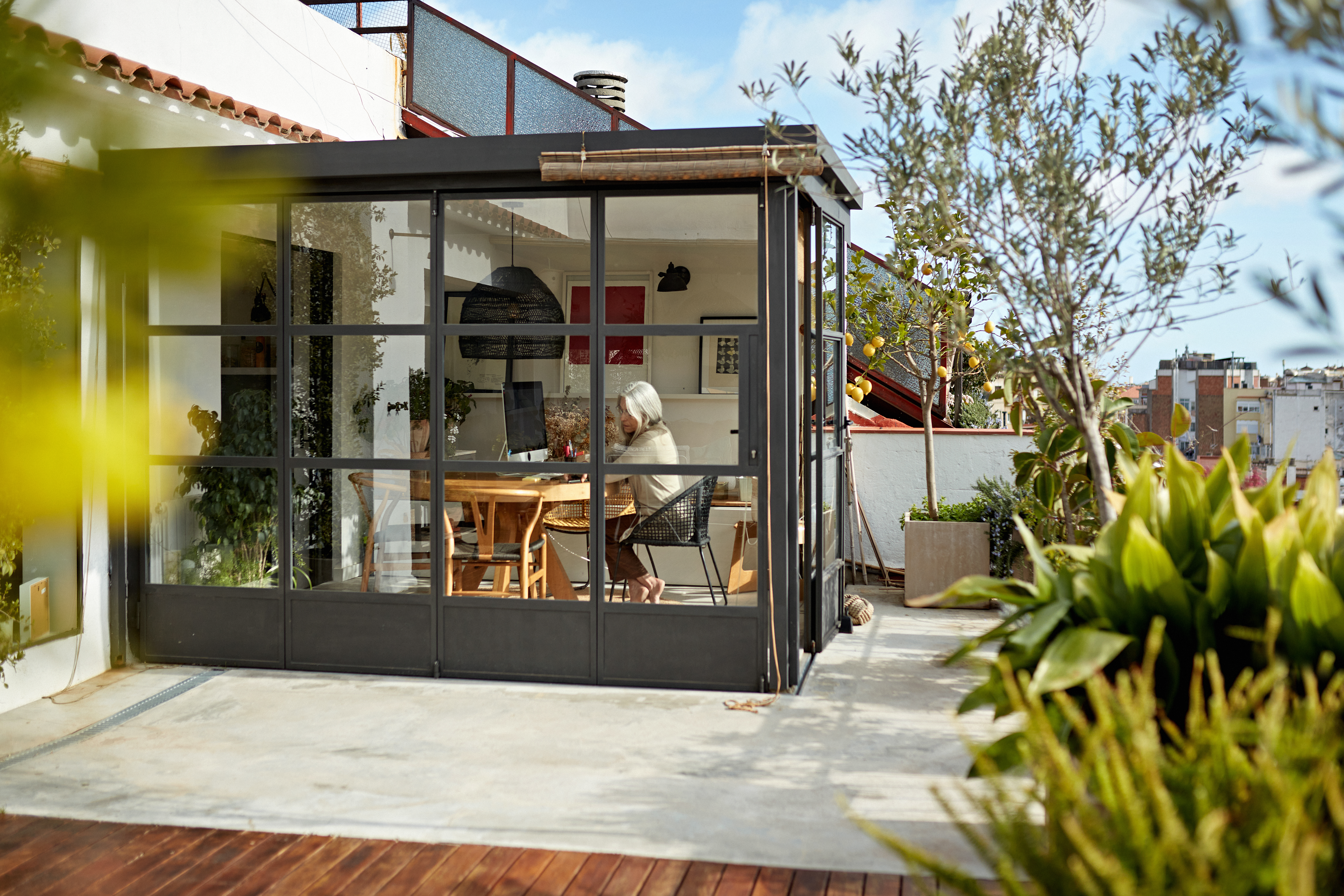27 Home Energy Efficiency & Conservation Tips

As homeowners know, there are many costs associated with running a household. You need to pay for your groceries, your mortgage, your internet bill, cable, and that pesky electric bill. But it turns out that you can make a serious dent in that last expense by taking advantage of easy-to-implement energy efficiency measures. Ready to start saving money? Want to reduce your carbon footprint? Keep reading for energy savings tips that you can use in your own household regardless of the season.
What is Energy Efficiency?
Energy efficiency means using less energy to provide the same amount of power. It’s a great way to save money on your electric bill and reduce your impact on the environment. And you can make a few small changes, like turning up your thermostat during summer by one degree, to be more energy-efficient and increase the amount of money you save over time.

Energy Efficiency Tips
Here are some of the top ways to conserve energy in your home:
-
Replace traditional light bulbs with LEDs. LED light bulbs use between 2 and 17 watts of electricity, which is 1/3rd to 1/30th of the energy required by incandescent bulbs. Besides costing less when in use, LEDs also boast a longer lifespan compared to traditional bulbs. If a household uses an average of 25 bulbs and switches to LED from incandescent, savings can exceed $3,600 over 25,000 hours of use.
-
Turn off your lights when not in use. The electric lights in your home account for around 12.5% of your total utility bill. It’s a good idea to be conscious of what lights are in use and how long you’re using them. By turning off lights when not in use, you can make a significant difference in your total energy savings.
-
Replace single-pane windows. Single pane windows aren’t great at insulating or keeping your home cool inside. Energy-efficient doors and windows, on the other hand, can eventually pay for themselves by lowering heating and cooling costs over time.
-
Don’t crank the thermostat up or down. Set your thermostat to the temperature you want, rather than turning it all the way up or down in hopes your home will heat or cool faster. Changing your thermostat to a higher or lower setting will not make your HVAC system work any faster.
-
Watch your exhaust fan use. Exhaust fans are a major energy hog. They work by replacing indoor air with air from the outside. As soon as you have finished cooking, turn your kitchen exhaust fan off. And when the fog evaporates from your bathroom, it’s a good time to turn off the bathroom exhaust.
-
Turn the oven off a few minutes before your food is done. Your food is still cooking even if the temperature inside is reduced by a degree or two over those few minutes.
-
Read the fine print on your refrigerator. It’s worthwhile to locate and follow the manufacturer’s recommended temperature setting for your fridge to avoid overcooling your food and wasting energy.
-
Keep your HVAC system maintained. A well-maintained HVAC system will help heat and cool your home more efficiently. Consider scheduling regular spring and fall inspections to make sure your system is ready for summer and winter.
-
Use your ceiling fan’s rotation speeds appropriately. In the summer, your ceiling fan should be set to spin counterclockwise to push cool air down. During the winter, your ceiling fan should rotate clockwise to pull up cool air up and away from the main living spaces.
-
Know the signs of an outdated HVAC system. If your HVAC system is loud, close to the end of its manufacturer-recommended lifespan, or creating sooty or dusty conditions around your home, it might be time for an HVAC replacement. And remember, even a well-maintained but older HVAC won’t work as well as a modern energy-efficient HVAC. HVAC technology changes rapidly. Weigh the costs of repairing your old system with the savings of a new one before shelling out thousands to repair an outdated model that may have exceeded its useful life.
-
Perform a DIY energy audit. You can look for drafts and air leaks in your home by burning incense to see where the smoke is being pulled to the outside. Alternatively, you can place your hand near windows and doors to feel for heat air or cold drafts. Add weatherstripping or caulking to seal any air leaks.
-
Ensure ducts are sealed. Air loss through ceiling ducts can account for almost a third of a cooling system’s energy usage, so make sure your ducts are sealed and insulated.
-
Keep your refrigerator stocked but not overstuffed. Did you know that your fridge and freezer work most efficiently when there is food in them? Be careful not to overfill your fridge and freezer, however, because this tends to restrict overall airflow.
-
Install a smart thermostat. A smart thermostat will turn the temperature up or down based on your schedule or can be programmed to operate based on whether the room is occupied or unoccupied. A programmable thermostat can save you around $180 every year.
-
Take advantage of passive solar heat. If you have a room in your home that gets a lot of sun, you can open all the blinds or curtains to let the sunshine in. Then, once the sun dips or moves away, close the blinds or drapes to trap the solar heat inside.

-
Set your indoor temperature to 68F during the winter. Even a few degrees lower can make a big difference on your utility bill.
-
Set your indoor temperature to 78F during the summer. While this isn’t a “cold” temperature, it will keep you comfortable when trying to escape a major heatwave without using too much energy.
-
Cook outside on warm days. Keep your home as cool as possible during the summer months by cooking outside when you can. Firing up the grill in the great outdoors ensures you’re not adding unnecessary heat to your kitchen, plus you can finally try your hand at being the “Pitmaster.”
-
Open the oven door when it’s cold. During cooler months, crack open the oven door after you’ve finished cooking and let warm air permeate the kitchen while the oven is cooling.
-
Use natural light when possible. While there might be some areas where indoor lights are almost always required, take advantage of natural sunlight for both heat and light when possible. Depending on the season, consider keeping the blinds and drapes open when the sun is shining.
-
Change the setting on your dishwasher to air dry. Your heat-dry setting uses up significantly more energy, so just let your dishes air dry when you can.
-
Clean or replace the air filters in your home often. Dirty filters force your HVAC system to work harder. At a minimum, inspect and consider replacing your HVAC filter every three months. If the filter looks dirty before then, go ahead and change it.
-
When possible, clean your clothes using cold water. It takes much more energy to heat water, so use cold water washes if possible.
-
Try not to open the oven while cooking food. Every time you open the oven door during cooking, the temperature inside can be lowered by around 25 degrees. In turn, that means the oven has to use more energy to return to the desired temperature.
-
Don’t keep your devices on all day. To save the most energy, keep electronic devices like your laptop or printer plugged in only when you’re actually using them. Power down and unplug devices when not in use.
-
Use the dishwasher and clothes washer/dryer at night. Not only will this keep your house cooler during the summer months, washing dishes and doing laundry during off-peak hours can reduce your utility bill and the strain on the electrical grid.
-
Don’t leave your mobile phone plugged in overnight. While this might be a hard habit to break at first, keeping a fully-charged phone plugged in and drawing energy all night is a waste. It only takes a few hours to fully charge most smartphones.
Takeaways: Energy-Saving Tips and Tricks
Living completely off the grid is an unrealistic goal for the majority of homeowners. But even if you aren’t ready to commit to extremes, there are easy ways for you to save money on your electric bill. In most cases, it makes sense to start out by assessing your home energy costs from a whole-house perspective. A DIY home energy audit is a good starting point. To get the most bang for your buck, you may want to call in a professional. With these tips in mind, you’ll be on your way to saving hundreds — maybe thousands! — on your annual electric bill.




